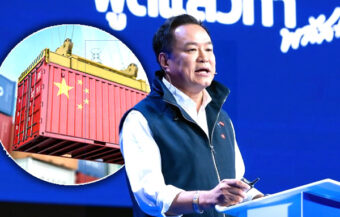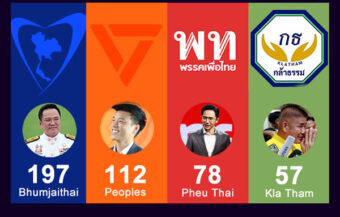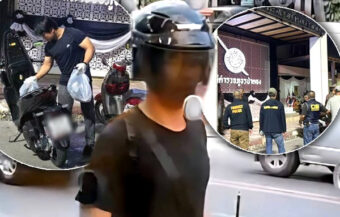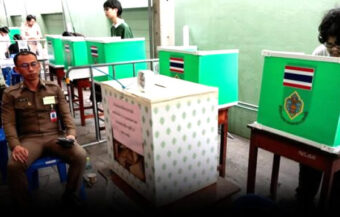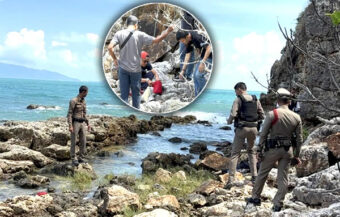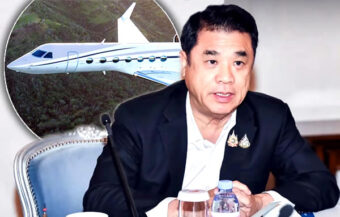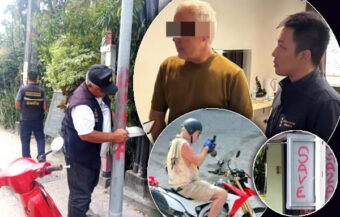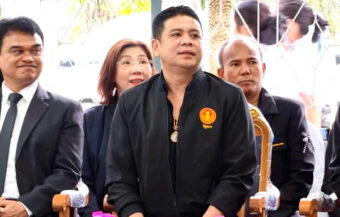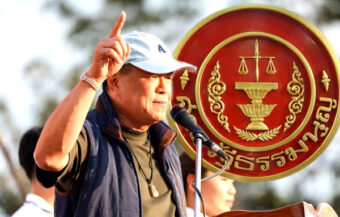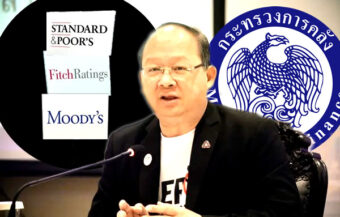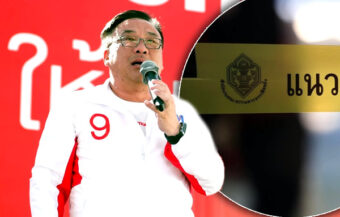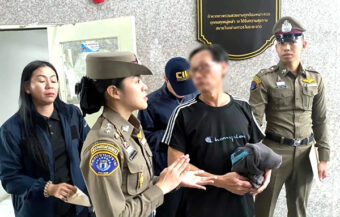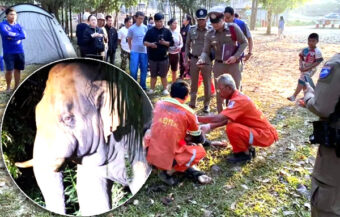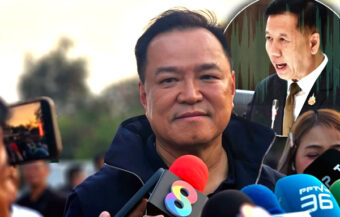King Maha Vajiralongkorn and Queen Suthida are warmly welcomed in Beijing by President Xi Jinping as their four-day state visit begins, marking the first by a reigning Thai monarch in 50 years of advancing trade, rail, investment and strategic ties.
A four-day visit by Thailand’s King Maha Vajiralongkorn and Queen Suthida is underway in Beijing, where the King was received on Friday by Chinese President Xi Jinping in a tightly managed state welcome. It is the first visit by a reigning Thai monarch since diplomatic ties were established in 1975. The two countries stood on opposite sides of the Cold War until then, yet they have since built a fast-deepening relationship. China is now Thailand’s largest trade partner. Talks in the coming days are expected to drive stronger cultural and infrastructure cooperation, backed by investment and trade links that have already expanded at speed.
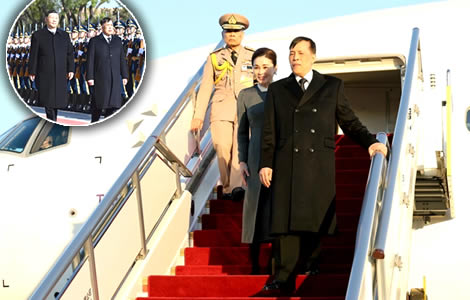
On Friday, November 14, 2025, His Majesty King Maha Vajiralongkorn and Her Majesty Queen Suthida continued their official state visit to the People’s Republic of China. The visit began on Thursday, November 13, when the royal couple left Amporn Sathan Throne Hall at 10:20 a.m. They travelled by royal vehicle to Don Mueang Military Airport and boarded Thai Airways flight TG 8886. The visit runs from November 13 to 17, 2025, at the invitation of Chinese President Xi Jinping.
The trip marks the first visit by a reigning Thai monarch since diplomatic ties were established 50 years ago. Moreover, it serves as a formal commemoration of five decades of bilateral relations. The visit reinforces diplomatic engagement and expands cooperation. In addition, it highlights trade, tourism, and strategic coordination between both nations.
China is presently trying to forge closer relationships with other countries. It comes with strained ties between the Communist country and the United States since 2017. Earlier this week, President Xi Jinping also welcomed Spain’s King Felipe VI and Queen Letizia.
Royal arrival in Beijing marked by protocol, senior officials, and preparations for upcoming talks
On Thursday at 4:03 p.m. local time, the royal aircraft landed at Beijing Capital International Airport. His Majesty granted an audience to Mr. Chatchai Viriyavejkul, Thailand’s ambassador to Beijing. The ambassador delivered a welcome address to Mr. Hong Lei, assistant foreign minister and director-general of the Department of Protocol. Mr. Hong then invited His Majesty to disembark from the royal aircraft.
Senior Chinese officials were present for the formal reception. Mr. Wang Yi, member of the Political Bureau and minister of foreign affairs, attended. Additional officials were also present. A Chinese boy presented flowers to His Majesty. A Chinese girl presented flowers to Her Majesty. Afterwards, His Majesty inspected a line of the honour guard. Mr. Wang Yi then escorted the royal couple to their vehicles.
The King and Queen travelled by royal vehicle to the China World Hotel in Beijing. Chinese authorities provided the hotel as their designated residence. The itinerary includes high-level talks, official ceremonies, and detailed discussions on cooperation. Furthermore, the schedule covers infrastructure, trade, and long-term planning.
On Friday, King Vajiralongkorn was personally welcomed by President Xi Jinping in Beijing. Xi emphasised strengthened strategic coordination between the two nations.
Xi welcomes Thai King as both sides advance strategic coordination and key major project talks
He also highlighted cooperation on major projects, including a China–Thailand railway. Additionally, he addressed trade, focusing on increased Thai agricultural exports to China. According to official Chinese information, these discussions reflect long-term strategic priorities.
The visit is portrayed by Chinese authorities as evidence of stable bilateral engagement. Moreover, it follows earlier visits by other foreign monarchs. These consecutive engagements highlight Beijing’s growing diplomatic reach.
Bilateral ties between Thailand and China have shifted over several decades. During the Cold War, Thailand aligned with the United States and viewed China as a threat. However, relations changed as economic links expanded. Since the 1980s, trade, investment, and tourism have grown steadily. King Vajiralongkorn last visited China in 1987 as Crown Prince. He travelled on a mission assigned by King Bhumibol Adulyadej, who himself never visited China.
China is now a major source of tourists for Thailand. It is also a key investor in Thai industries, including automobile manufacturing. Thailand imported $80 billion in goods from China in 2024. Both countries continue pursuing joint economic projects. Consequently, their relationship spans trade, industry, tourism, and strategic coordination.
Historical exchanges and expanding trade are part of long-term Thailand–China ties driving cooperation
Chinese state reports highlighted early exchanges between the two nations. Thailand historically exported rice, spices, and tin ore to China. In return, it imported porcelain, silk, tea, and ironware. Athletes from Thailand participated in table tennis championships in China in the 1970s before diplomatic recognition. China also supplied crude oil to Thailand in 1974 during economic difficulties. These examples were cited as precedents for current cooperation.
Ceremonial arrangements during the visit followed strict protocol. Floral presentations, honour guard inspections, and formal greetings were conducted. Chinese authorities managed transport, accommodation, and logistics. The program includes meetings on infrastructure, trade, and long-term projects. Cultural events highlight the historical ties between both nations.
The visit occurs during shifting global trade conditions. The recent reciprocal tariff move by the United States has certainly impacted markets in Southeast Asia. Chinese authorities have, in contrast, emphasised consistent engagement and regional stability. The presence of the Thai monarch is presented as confirmation of strong bilateral relations.
High-level talks include transport infrastructure, agricultural exports, and investment planning. Meetings between the King and President Xi focus on rail projects, economic coordination, and regional connectivity. As a result, the visit is expected to produce practical outcomes.
Ceremonial protocol and strategic meetings define a visit centred on infrastructure, trade and coordination
The program reflects both ceremonial and strategic weight. Each event follows established protocol. Chinese authorities oversee accommodation, security, and transportation. Daily activities include technical sessions on joint projects. Cultural events accompany the diplomatic program.
The visit will conclude on Monday, November 17, 2025. Both governments indicate that follow-up work will continue after the trip. Strategic coordination remains central to cooperation. Infrastructure and trade projects will guide future engagement.
Thailand and China maintain long-term cooperation in trade, tourism, investment and diplomacy. The 50th anniversary of diplomatic ties marks a significant milestone. The visit demonstrates sustained engagement at the highest level. It also reinforces a long-term regional relationship.
New cabinet sworn in before the King and Queen at a time of political instability and economic malaise
Monarch pays a touching tribute to Pope Francis as he is mourned in Rome. King and Queen ‘heartbroken’
Thai King and Queen to be at Westminster Abbey in London for the coronation of King Charles III
The reception of the King and Queen, led by President Xi, followed strict state protocol. Honour guard inspections and floral presentations were carried out. Meetings addressed infrastructure, trade, and long-term coordination. Historical exchanges and current economic ties remain central themes. Chinese state media reports emphasised continuity across decades of bilateral interaction.
The visit marks the first by a reigning Thai monarch since diplomatic relations were established. Indeed, it is the first by any Thai monarch. It therefore represents a ceremonial and practical milestone.
Trade, tourism, investment, and infrastructure remain central pillars of cooperation. Furthermore, the visit emphasises the significance of sustained diplomatic engagement at a challenging time for both countries.
Join the Thai News forum, follow Thai Examiner on Facebook here
Receive all our stories as they come out on Telegram here
Follow Thai Examiner here
Further reading:
Anutin planning eight-month economic programme as his PM tenure will extend to the next government
2nd Army chief warns Acting PM Cambodian regime cannot be trusted and that border must stay closed

